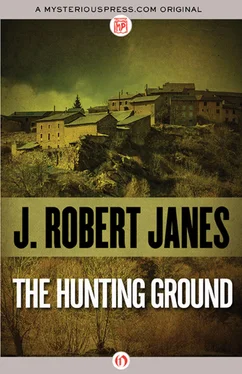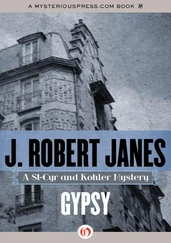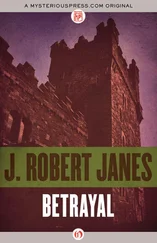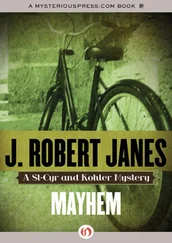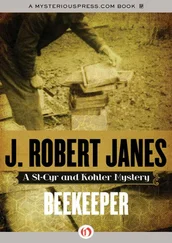J. Janes - Hunting Ground
Здесь есть возможность читать онлайн «J. Janes - Hunting Ground» весь текст электронной книги совершенно бесплатно (целиком полную версию без сокращений). В некоторых случаях можно слушать аудио, скачать через торрент в формате fb2 и присутствует краткое содержание. Год выпуска: 2013, ISBN: 2013, Издательство: MysteriousPress.com/Open Road, Жанр: Триллер, на английском языке. Описание произведения, (предисловие) а так же отзывы посетителей доступны на портале библиотеки ЛибКат.
- Название:Hunting Ground
- Автор:
- Издательство:MysteriousPress.com/Open Road
- Жанр:
- Год:2013
- ISBN:978-1-4804-0067-2
- Рейтинг книги:4 / 5. Голосов: 1
-
Избранное:Добавить в избранное
- Отзывы:
-
Ваша оценка:
- 80
- 1
- 2
- 3
- 4
- 5
Hunting Ground: краткое содержание, описание и аннотация
Предлагаем к чтению аннотацию, описание, краткое содержание или предисловие (зависит от того, что написал сам автор книги «Hunting Ground»). Если вы не нашли необходимую информацию о книге — напишите в комментариях, мы постараемся отыскать её.
Hunting Ground — читать онлайн бесплатно полную книгу (весь текст) целиком
Ниже представлен текст книги, разбитый по страницам. Система сохранения места последней прочитанной страницы, позволяет с удобством читать онлайн бесплатно книгу «Hunting Ground», без необходимости каждый раз заново искать на чём Вы остановились. Поставьте закладку, и сможете в любой момент перейти на страницу, на которой закончили чтение.
Интервал:
Закладка:
J. Robert Janes
Hunting Ground
1
It was quiet now, no more fighting, no more tears. Through the tall French windows of the kitchen, I could see the children outside and I wondered, as I have so often of late, whether I ought to take them to England.
The Nazis were threatening war. First it was the Saarland, then Austria, then Czechoslovakia, and now Poland. Hitler wouldn’t stop. France and Britain would have to go to Poland’s aid, but if they did, and I took the children to England, Jules and I would part company-he’d never let me have the children, not if he could stop it. And anyway, who was to say France wouldn’t keep the Germans out, but if she weakened and couldn’t, what then?
The faded orange-red brick of the courtyard always trapped the sun, and I remember those bricks as if it were yesterday and I were still there: the warmth that emanated from them, the smell, the roughness. Jean-Guy was only seven when it all started, and I remember a day in late August 1939, remember the sight of him playing in the sandbox. He had mountains and valleys, roads and tunnels-bridges, railways, houses, farms, so many things, and I could understand, of course, why he had wanted it all to himself. Marie-Christine would have destroyed things-not intentionally, ah, no, she would want only to help or to build a little something herself. To dig perhaps.
Jean-Guy was so like Jules. You saw it in the pinched, aristocratic face, the hawkish nose, thin upper lip, tight smile, dark brown eyes that hid so much and tried so hard to analyse, sometimes with great success, sometimes with utter cruelty, believing as he had, that he’d said and done the right thing.
Totally committed to his play, he brought the train up to the station. I can still hear the lineman shouting in the near distance and see that one waving his lantern.
Then the train started up. Yes, yes, that train … I can’t ride one of those things, but I hear the sound of the wheels and remember. Marie-Christine was only three when it all started. Three!
She had placed herself safely under one of the pear trees. Not too close, yet close enough so as to be a constant reminder of the fight and to trouble the conscience of a brother whom she could both hate and love with equal passion.
Normally cheerful and industrious, Marie always painted boldly with the strength and flourish of her grandmother, whom she loved without question. Torn sheeting covered the dress, forming an enormous smock that trailed to her ankles. Sweat dampened the silky ash-blonde curls that would, in time, turn to an auburn through which the sun would shine copper-gold.
Now and then, the watercolours I no longer had time to use wouldn’t mix with the water. At these times, she would scold the brush and talk sternly to the glass of water that was perched half on and half off the edge of the chair. She’d get thirsty, too, and drink the water. ‘Red wine-yes, it was wine, maman. ’ Ah, mon Dieu , they had been so little, so innocent, and I … why I had thought we might just get away with it.
The château-increasingly I had found myself wanting to call it that, to tell people I lived in this great big beautiful house in the woods on the edge of the Forest of Fontainebleau, but it was really just a manor house, une maison de maître . Built in 1794, owned always by the de St-Germains, its pink stucco, grey trim, shutters, slate roof, and faded brickwork had the air of ruin about them as if, in just being there, they had stayed too long.
There were seventeen rooms, countless family heirlooms and priceless pieces of art, long corridors, a grand entrance, and a staircase, the huge and cluttered attic, the kitchen-our refuge-with its courtyard at the back. Nice … Oh, for sure, it was nice, but it was also lonely and that, too, was a part of things.
There were no other houses around us, no neighbours, just Tante Marie and Georges who lived down the road in the cottage, housekeeper and gardener when it suited them or their loyalty to Jules.
In Fontainebleau, the shopkeepers tended to think Jules had money because he lived in such a big house and his family had once been well-off. Pah! How crazy it was. Far better to have lived on the farm near Barbizon with mother. There the people had earth and manure under their fingernails, and that was always good for building character if nothing else. Barbizon wasn’t that far from the château-just six or seven kilometres through the forest, more by road, of course, but all the closer to Paris. Bien sûr, there were plenty of tourists, both in Barbizon, for the artists’ colony that had once been there, and in Fontainebleau for the palais, the hunting lodge of kings. But who could be friends with tourists and the hordes from Paris when they took over everything, crowded the cafés and shops, and pushed you out of the way even though you lived nearby and had done so nearly all your life?
Yes, we should have stored the furniture and things and leased the château. Living off the income would have made life easier. Mother wouldn’t have minded. She adored the children. After she had become used to having us, things would have been all right.
But I mustn’t lie-not to myself. Paris … I was only thinking of escaping to my lover, my husband, Jules.
I remember taking a handful of flour from the bin at my knees. Sprinkling it over the dough I’d been kneading, I blew stray strands of hair from my brow and cursed the heat from the wood-fired stove. Deftly, I shaped a loaf for Marie. It would be in the shape of a fish that day, with great big eyes and scales all down its back and sides. I would baste the loaves with beaten egg yolk and a little sugar to make the crust a golden brown and give the fish a bit of a glaze. Surely, a little sugar wouldn’t hurt her teeth? Just a little.
Jean-Guy had started the fight by demanding the whole of the sandbox and his sister’s brand-new shovel. He really ought to have been punished. I should make his loaf into the shape of an ugly toad. Yes, a toad.
This I couldn’t do. He had asked for a tiger. Every day, he reminded me of his father.
Covering the loaves with a damp cloth, I set them to rise some more on the shelf above the old iron range. Wiping my hands on my apron, I tried to tidy my hair but knew it would only be a mess. Jules was then forty, a professor of art history at the Sorbonne. I had met him there and we had fallen in love, he eight years older than I. We had been married for seven years before it all started. Well almost. Well, six-and-a-half. Jean-Guy had decided things.
Jules had liked younger women but … why, I’d been the younger one, just twenty-five and full of happiness, eager, so eager for life. Jean-Guy had been born that spring, a short two months after the wedding. Thank God for the château then, for the loneliness it provided.
Like so many of the French intelligentsia, Jules expected me to be housewife and mother, to cook his meals, do his laundry, look after his family’s house, and never question why he was staying overnight in Paris, the weekends, too.
Lots of the girls had worshipped him. I’d been a fool to ignore things. Janine, my little sister, had been almost at the same age as I had. Twenty-six and ripe for mischief. A dangerous situation. Something had had to be done. We had to have money, too. Jules had expected it to grow on trees, I suppose. I only know he wanted to go on living as his father had.
Yes, money. That had been a part of it. Money and my sister.
The children played in the warmth of the sun and quiet of the garden. I took off my apron and washed my hands and face at the pump by the sink. Then I ran a comb through my hair and went outside to study their handiwork.
Читать дальшеИнтервал:
Закладка:
Похожие книги на «Hunting Ground»
Представляем Вашему вниманию похожие книги на «Hunting Ground» списком для выбора. Мы отобрали схожую по названию и смыслу литературу в надежде предоставить читателям больше вариантов отыскать новые, интересные, ещё непрочитанные произведения.
Обсуждение, отзывы о книге «Hunting Ground» и просто собственные мнения читателей. Оставьте ваши комментарии, напишите, что Вы думаете о произведении, его смысле или главных героях. Укажите что конкретно понравилось, а что нет, и почему Вы так считаете.
